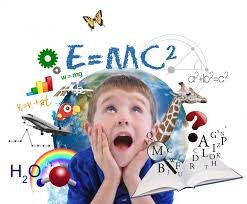
Intelligence: in other words, intelligence is the ability of the mind to learn, benefit from what has been learned, adapt to new situations and find new solutions. In other words, intelligence is a combination of abilities that emerge as a result of the harmonious operation of many abilities of the mind. Intelligence plays a decisive role in many processes such as learning, perception, judgment, memory, thinking, analysis, and social communication. The meaning of the word in Arabic is twinkle, shining of fire.
Intelligence development begins with the birth of the baby and develops until later in life. The first 4-5 years of life have an important place in the development of intelligence. The determinants of intelligence can be listed as genetic heredity (heredity) and environmental factors. Environmental factors include education, friend environment, place of residence, etc.
Intelligence has an important role in child development and living in harmony with its environment. In addition to ensuring academic success, intelligence has a great role in establishing healthy human relations.
Intelligence also plays a leading role in overcoming the problems that a person will encounter. It has been found that people with a healthy intelligence have a low risk of developing psychiatric diseases, while the rate of recovery from the disease is high in people who do.
Intelligence assessment is done with clinical observation and intelligence tests. As children get older, the margin of error of intelligence tests decreases and their objectivity increases. The results of intelligence tests are reflected as the IQ score. 90-120 is considered as intelligence within normal limits and reflects the society average.
Roughly, an IQ score below 90 indicates mental retardation, and scores above 120 indicate giftedness. Generally, the rate of gifted people is the same in all societies and they constitute about 3% of the society.
How can it be understood that a child is gifted?
The giftedness of the child begins to be evident in the first years of life and becomes evident in later ages. The first characteristics of gifted children are that they pass the developmental stages early and that they have good learning and imitation skills. For example, features such as a child’s early response to his name, early speech, and ability to distinguish faces indicate that that child may be gifted. These children start actively to explore their surroundings and can use what they discover for their intended purpose. In advanced ages, it is expected that the child learns early, is interested in learning, does not forget what they have learned, and can relate the information they have learned with other learning. It is frequently observed that the child with high intelligence comprehends the cause and effect relationship more easily, pays attention to the details and discovers innovations in their lives due to this feature. Features such as establishing healthy social relationships, leading among peers, and communicating with older children suggest that the child may be gifted.
Gifted children can learn concepts up to the age of 3, speak fluently and comprehensively, describe what they see in detail, and even memorize long poems. They learn to read and write in preschool and they can learn to speak a second language. It is known that gifted children often ask questions compared to their peers and they want to get detailed and comprehensive answers to their questions. In addition, the ability to distinguish emotions, to think abstractly, and to empathize may develop early in these children. Gifted children are chosen from their siblings and friends, and this can lead to different treatment in family and society.

